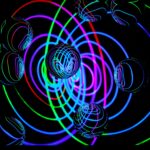This is Terence Tao. His IQ is 230, And He’s Officially Recognized as The Smartest Person in The World

What does it take to be officially recognized as the smartest person in the world? Is it simply a number—a score on a test—or is it something more? Meet Terence Tao, a man whose IQ of 230 has placed him in a league of his own. Known as the “Mozart of Math,” Tao’s extraordinary intellect is undeniable, but what truly sets him apart is not just the staggering numbers or accolades, but the way he uses his brilliance to inspire, connect, and explore the boundless possibilities of the human mind.
From solving math problems that have baffled the world’s greatest minds for centuries to teaching others with humility and joy, Tao exemplifies a new kind of genius. He’s not just a prodigy or a mathematician—he’s a reminder that intelligence isn’t just about knowing answers but about asking the right questions, embracing challenges, and finding beauty in the pursuit of knowledge.
What Does It Mean to Be a Genius?
The term “genius” often conjures images of child prodigies solving complex equations or inventing groundbreaking technologies. But what does genius truly mean? For decades, IQ tests have been the go-to method for measuring intelligence. Terence Tao’s remarkable IQ of 230 places him in the stratosphere of human capability. However, even this astounding number doesn’t tell the full story of what makes someone like Tao exceptional.
IQ, or Intelligence Quotient, measures abilities like logical reasoning, memory, and problem-solving. A score of 100 is considered average, with scores above 130 representing the top 2% of the population. While an IQ of 230 is extraordinary, it’s important to remember that intelligence is more than a number on a test. Psychologists like Howard Gardner argue that intelligence is multifaceted, encompassing abilities in areas like music, interpersonal skills, and even self-reflection. Similarly, Emotional Intelligence (EQ), which measures a person’s ability to understand and manage emotions, adds another layer to our understanding of what it means to be “smart.”
Tao’s life offers a glimpse into this broader view of genius. His work as a mathematician involves more than just calculations—it requires creativity, intuition, and the ability to collaborate across disciplines. It’s a reminder that intelligence isn’t static or one-dimensional; it’s a dynamic force that evolves with curiosity, persistence, and connection.
The Early Life of a Prodigy
 Image source: University of California, Los Angeles YouTube Channel
Image source: University of California, Los Angeles YouTube Channel
Terence Tao’s journey into the world of genius began at an age when most children were still learning their ABCs. By the time he was 2 years old, Tao had taught himself to read. At age 8, he scored an astonishing 760 on the math section of the SAT, and by 10, he became the youngest person in history to win a medal at the International Mathematical Olympiad. These milestones were not just signs of his intellectual prowess but a prelude to a life defined by an insatiable curiosity and an extraordinary ability to think abstractly.
Tao’s parents, immigrants from Hong Kong, played a crucial role in nurturing his talent. His father, Billy, a pediatrician, and his mother, Grace, a teacher, ensured that Tao’s education was carefully balanced with time for social and emotional development. Unlike the stereotypical “isolated genius,” Tao grew up in what he describes as a “super-normal” family environment. He and his brothers spent hours creating board games, reading fantasy novels, and exploring the imaginary worlds they dreamed up together. This nurturing childhood helped Tao develop not just his intellect but also the humility and creativity that would later define his career.
Despite his prodigious abilities, Tao faced his share of challenges. Like many gifted children, he struggled with the pressures of high expectations. At just 12 years old, he failed a quantum physics exam after misjudging the importance of an essay question. These moments of failure, however, became valuable lessons. Tao learned early on that intelligence wasn’t about perfection—it was about resilience and the willingness to grow through mistakes.
By age 17, Tao had completed his master’s thesis and began his Ph.D. at Princeton University. Even in an environment surrounded by brilliant minds, he sometimes felt intimidated. Yet, these experiences only deepened his resolve to understand mathematics on a deeper level. Tao’s early life is a testament to the idea that genius isn’t just about raw talent—it’s about cultivating that talent through support, curiosity, and perseverance.
Terence Tao’s Legacy in Mathematics
 Image source: University of California, Los Angeles YouTube Channel
Image source: University of California, Los Angeles YouTube Channel
Terence Tao is often called the “Mozart of Math,” and for good reason. His contributions to the field of mathematics have reshaped our understanding of some of its most complex and mysterious problems. From his groundbreaking work on prime numbers to his innovative approaches in fluid dynamics, Tao’s intellect operates at a level few can fathom. Yet, what makes his legacy truly remarkable is not just his individual achievements but his ability to bring others along on the journey.
One of Tao’s most celebrated accomplishments is the Green-Tao theorem, which he co-authored with mathematician Ben Green. This theorem proved that within the infinity of integers, there are sequences of prime numbers that follow a consistent pattern of equal spacing, no matter the length. This discovery wasn’t just a technical triumph—it bridged gaps between disparate areas of mathematics, establishing a new interdisciplinary field known as additive combinatorics. Mathematicians around the world hailed the theorem as a landmark achievement, opening up new avenues of research and inspiring countless others.
Tao’s work doesn’t stop with prime numbers. His efforts to tackle the Navier-Stokes equations, a problem that has stumped mathematicians for over a century, demonstrate his relentless curiosity. This set of equations describes the behavior of fluids, like water or air, and solving them could revolutionize fields ranging from meteorology to engineering. Tao’s imaginative approach includes thought experiments that resemble something out of science fiction, like imagining a self-replicating machine made entirely of water currents. These creative leaps, grounded in rigorous logic, showcase his ability to think outside the box while staying rooted in mathematical principles.
What truly sets Tao apart, however, is his collaborative spirit. Unlike the stereotypical lone genius, Tao thrives on working with others, often reaching across disciplines to solve problems. He has collaborated with over 30 mathematicians and is known for his generosity in sharing knowledge, whether through co-authoring papers, mentoring students, or blogging about mathematical concepts in a way that is accessible to both experts and enthusiasts.
Comparison with Other High IQ Individuals
 Image source: Shutterstock
Image source: Shutterstock
Terence Tao’s IQ of 230 is exceptional, placing him at the pinnacle of measured intelligence. However, history has seen other individuals with extraordinary intellectual capacities who have left their mark in unique ways. By comparing Tao with a few of these figures, we can better understand the breadth of how genius manifests and impacts the world.
- Marilyn vos Savant: With an IQ of 228, vos Savant became famous for her “Ask Marilyn” column, solving complex puzzles for the public. Her work highlighted the value of making intelligence accessible, much like Tao’s collaborative approach in mathematics.
- Christopher Hirata: At 225 IQ, Hirata excelled as a prodigy in physics, working with NASA and advancing astrophysics. His contributions, like Tao’s, address profound scientific challenges.
- William James Sidis: Allegedly with an IQ between 250-300, Sidis was a child prodigy who pursued academic excellence but later chose a quiet, reclusive life, contrasting Tao’s open and collaborative nature.
- Leonardo da Vinci: A true polymath with a speculative high IQ, da Vinci’s achievements in art, science, and engineering mirror Tao’s ability to connect disciplines and think creatively.
- Albert Einstein: Estimated to have an IQ of 160, Einstein revolutionized physics. Like Tao, his legacy lies not just in discoveries but in inspiring others to see the world differently.
These comparisons not only underline the rarity of such high IQ scores but also illustrate the wide range of contributions that individuals with such scores can make—from theoretical physics and cosmology to literature and the visual arts. While the IQ score provides a numerical benchmark of cognitive ability, the real measure of these individuals’ intelligence is seen in their impact on the world, which often transcends the scope of any standardized test.
Redefining Genius Beyond Numbers
Terence Tao’s IQ of 230 is undeniably impressive, but his true brilliance lies in the way he approaches life. Through his humility, curiosity, and relentless pursuit of knowledge, Tao has shown us that intelligence is not just a gift—it’s a choice. It’s the choice to embrace challenges, collaborate with others, and find joy in the journey of learning.
As you reflect on Tao’s story, remember that intelligence is not confined to numbers or accolades. It’s about how we use our abilities to make the world a little brighter, a little better. Like Tao, we all have the power to redefine what genius means, one step at a time.
Featured Image Source: Simons Foundation on Youtube
Loading...






